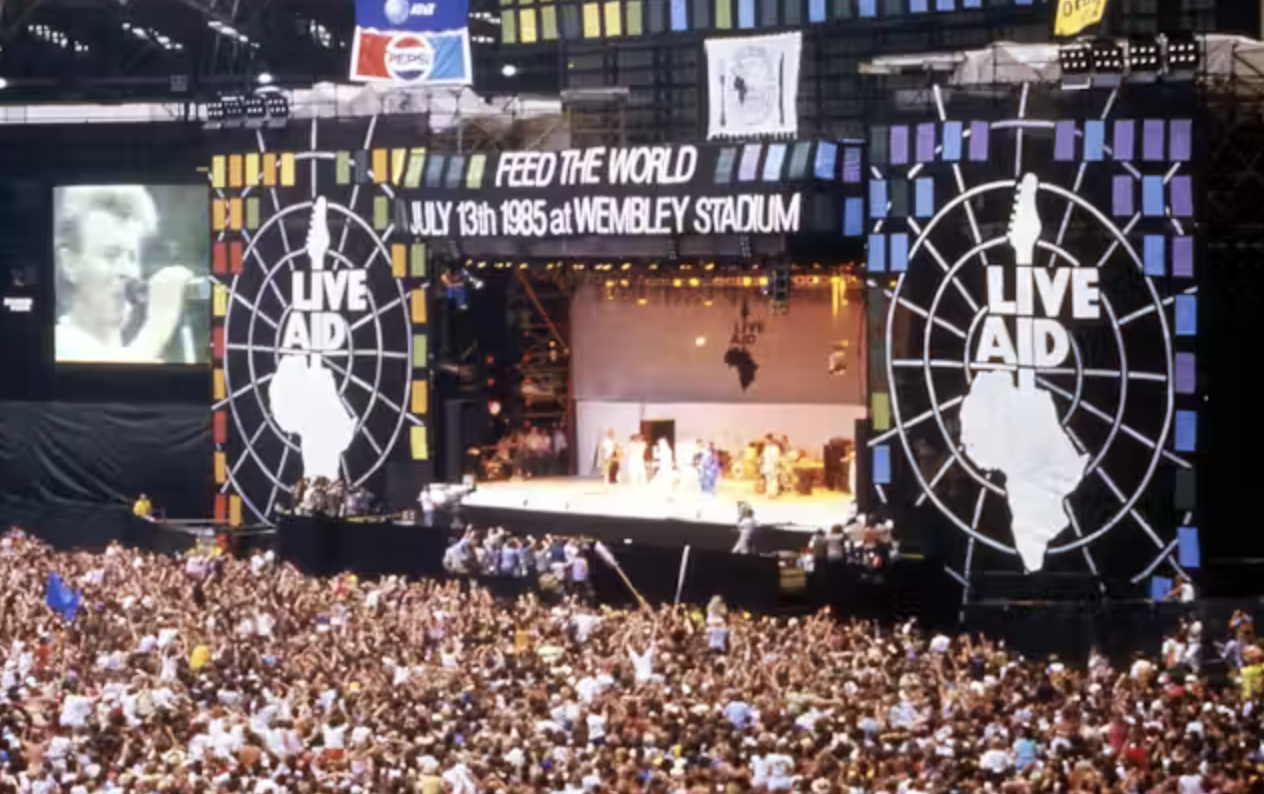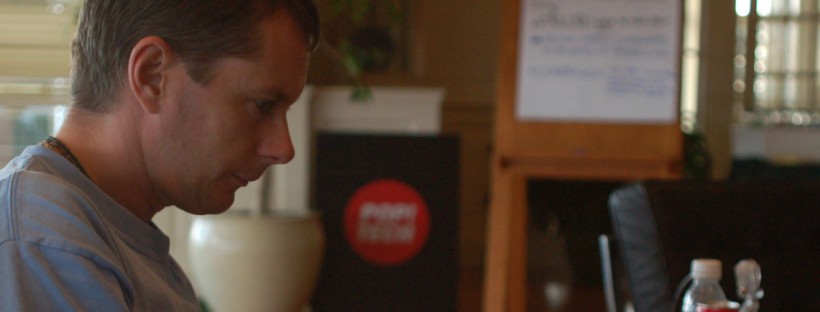It’s not often you can pinpoint the precise moment in time that your life moved in an entirely different, and unexpected direction. For me, 13th July 1985 – probably around midday – was that moment. I remember it well.
Live Aid that summer has come under intense scrutiny, particularly over recent years, accused of oversimplifying the Ethiopian famine and failing to address the complex political and structural causes of the crisis. In particular, critics argue that the event promoted a ‘white saviour’ complex. Many of these accusations are fair, but not all.

What follows is an extract from my latest book, The Pursuit of Purpose, where I share what, back at the time of Live Aid, was a desperate search for purpose and meaning in my life. I owe a lot to Live Aid, faults and all.
“It took a global music event, of all things, to give me what I was missing. At precisely noon one hot Saturday afternoon in July 1985, Live Aid kicked off with Status Quo’s aptly-named ‘Rocking All Over The World’, signalling the start of one of the largest and most ambitious live music concerts and global fundraising events ever held. As I settled down to watch the opening of the show, little did I know how significant this day would turn out to be in my life. Over the previous two years a famine of biblical proportions had gripped Ethiopia, the worst to hit the country in over a century. These were pre-World Wide Web days and incredibly the famine, which was estimated to have impacted seven million people and killed another one million, had been kept largely hidden from view by the Ethiopian government. Described as ‘the closest thing to hell on earth’ by BBC reporter Michael Buerk, it was his report and film, the first by any journalist, which drove home the severity of what was happening and spurred a massive UK and global humanitarian response.
After watching Michael Buerk’s report, pop stars Bob Geldof and Midge Ure quickly mobilised two dozen fellow musicians and, in a single day in November 1984, recorded ‘Do They Know It’s Christmas?’, a hugely successful charity single released to raise urgent funds for the famine response. It became the fastest-selling UK single (it has since been overtaken by Elton John’s 1997 ‘Candle in the Wind’, a tribute to Lady Diana), selling a million copies in its first week alone and hitting the top of the charts in 14 countries, including the UK. The summer Live Aid concert was conceived as a follow-up to the Christmas single and, at its peak, boasted a global audience of almost two billion people in over 150 countries.
And sitting uncomfortably at home on Five Oaks estate, I was one of them.
My immediate reaction that day to stories and images of poverty and famine was one of shock, horror, embarrassment and guilt. Up until then I’d been largely focused on my own little world and, I hate to admit it, I poorly understood life for other people in other places. Jersey can do that to you. These days we have little excuse for not paying attention given the rise of the World Wide Web, online news and social media. Back in the 1980s, news occasionally bubbled slowly up out of the ground. There was no such thing as ‘breaking news’ that you could follow. Instead, an event would often come straight out and hit you like a ton of bricks. One minute there was no famine, and the next minute there was, and a biblical one at that.”

